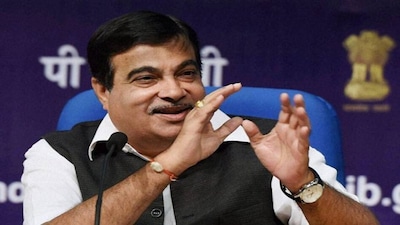NEW DELHI: To put a check on rising road accidents, the government is considering installation of three new safety devices on heavy commercial vehicles that will stop drivers from dozing off at the wheel and have provisions for emergency braking and vehicle stability, road transport and highways minister Nitin Gadkari said on Tuesday.
The devices that are expected to be made mandatory are electronic stability control system, emergency braking system and driver drowsiness alert and safety system. The consultation process for the installation of these devices is on and some inputs have come from stakeholders.
Following the consultation process, a draft notification will be issued before all the details are finalised, Gadkari told reporters after a two-day meeting with the transport ministers of states. He also said that there was a need to look at limiting the number of hours heavy commercial drivers can drive to 8 hours though it has its own set of challenges.
Around 180,000 people are killed on Indian roads annually, of which 33,000 are killed in accidents where trucks are involved.
The minister also announced a scheme for setting up 1,250 driver training schools over the next two years and fitness centres across the country for which the central government will provide financial support of Rs 4,500 crore. The states will not have to contribute any funds for them, barring land.
The centres coming up in Tier I cities would be getting support of up to Rs 17.25 crore, in Tier II cities Rs 5.5 crore and in Tier III towns Rs 2.5 crore. “These new schools would help meet the shortfall of drivers which stands at 2.2 million. The schools will be able to churn out 2.5 million drivers,” Gadkari said.
To encourage a circular economy in the auto sector, the minister said that the number of scrapping centres may cross 100 from 82 now and in some time every state would have at least one scrapping centre. The government is also looking at mandating use of recycled materials by the auto industry, he said. The meeting also discussed timelines for introduction of BS VII norms and the revised guidelines for pollution under control certificates were also presented.
The ministry of road transport and highways is also working on the nationwide roll-out of a scheme that will provide cashless treatment to road accident victims across the country. The pilots of the scheme are already functional and based on the learnings it will be extended to more states.
The scheme will cover hospitalisation expenses of up to 7 days or a maximum of Rs 1.5 lakh per accident per person. All hospitals, whether government or privately owned, will be covered by the scheme. In case of hit-and-run incidents, Rs 2 lakh would be given per person.
Source: The Financial Express




 Banks’ Profitability Likely To Moderate In FY26, Says India Ratings
Banks’ Profitability Likely To Moderate In FY26, Says India Ratings 